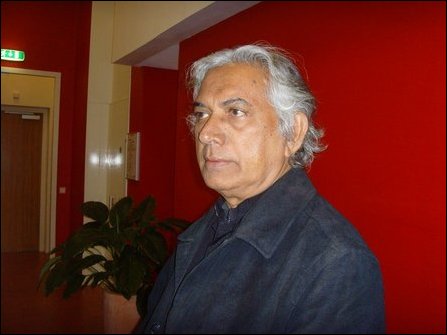national question
Québec: Why the Parti Québécois expelled SPQ Libre

By Richard Fidler
March 30, 2010 -- Life on the Left -- A five-year long attempt to reform the Parti Québécois (PQ) as an independentist and “social-democratic” party ended abruptly on March 13 when the PQ’s national executive decided not to renew recognition of its left-wing “political club” as an authorised grouping with the party. The decision, which effectively expelled Syndicalistes et Progressistes pour un Québec Libre (SPQ Libre)[1] from the party, was promptly approved by the PQ’s conference of constituency presidents.
Australia: Freedom fighter Chicka Dixon departs, his activist spirit lives on

Sri Lanka: Left-Tamil alliance to contest elections

Vickramabahu Karunaratne, the presidential candidate for the NSSP.
Martin Luther King Jr in the age of Obama: Why we can't wait

By Billy Wharton
January 17, 2010 -- Albert Boutwell's election as Birmingham, Alabama, mayor in 1963 might have signaled the end of the modern civil rights movement. As a moderate Democrat, Boutwell promised to temper the harsh repression unleashed by the city’s notorious chief of police and his mayoral opponent Eugene “Bull” Connor. Mainstream leaders of the black community were told to wait it out –- let the storm pass and incremental changes could begin. Dr Martin Luther King Jr. refused to wait. Instead, he launched Plan “C” (confrontation), a large-scale protest campaign that broke the back of Southern segregation.
Quebec left debates independence strategy (updated December 20, 2009)

Cuba and ALBA let down Sri Lanka’s Tamils
By Ron Ridenour
"Those who are exploited are our compatriots all over the world; and the exploiters all over the world are our enemies… Our country is really the whole world, and all the revolutionaries of the world are our brothers." -- Fidel Castro.[1]
“The revolutionary [is] the ideological motor force of the revolution…if he forgets his proletarian internationalism, the revolution which he leads will cease to be an inspiring force and he will sink into a comfortable lethargy, which imperialism, our irreconcilable enemy, will utilize well. Proletarian internationalism is a duty, but it is also a revolutionary necessity. So we educate our people.” -- Che Guevara.[2]
November 14, 2009 -- I think that the governments of Cuba, Bolivia and Nicaragua let down the entire Tamil population in the Democratic Socialist Republic of Sri Lanka, as well as “proletarian internationalism” and the “exploited”, by extending unconditional support to Sri Lanka’s racist government.
Canada/Quebec: Québécois denounce Supreme Court attack on language rights
By Richard Fidler
November 9, 2009 -- The October 22 ruling by the Supreme Court of Canada overturning yet another section of Quebec’s Charter of the French Language (CFL) has been met with angry protests by a broad range of opinion in the French-speaking province.
The court declared unconstitutional a law adopted unanimously by Quebec’s National Assembly in 2002 that closed a loophole in the charter being used to circumvent the requirement that Quebec students attend French-language schools. In effect, the judgment restores free choice of language of elementary schooling for parents rich enough to send their kids for a few years to private schools not funded by the Quebec government before enrolling them in English public schools.
United States: `Birthers', `deathers' and haters -- Right-wing populism and liberal retreat

October 11, 2009 — The heat is on the administration of US President Barack Obama. The energised conservative base has taken over town hall meetings on health care. There are “birthers” (those who claim Obama is not a US citizen and ineligible to be president), “deathers” (those who claim Obama’s health care reform is a plan to kill old people) and just pure haters. Obama has been personally attacked as a racist, socialist, communist, Stalinist, fascist, Nazi, Pol Potist, foreigner and every other name the right finds in its vocabulary.
When Obama led the US delegation to Copenhagen to get his home town of Chicago the 2016 Olympics — and failed — he was attacked as “out of touch” by the right. When Chicago was knocked out in the first round of voting, the right gleefully cheered! The “country first” crowd forgot that a Chicago Olympics would be in the United States, not “Obama Land”.
